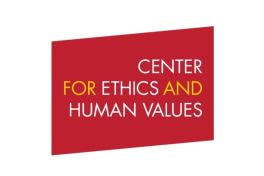
CEHV and the Kirwan Institute are delighted to present this year's Distinguished Lecture in Ethics, featuring Professor Tommie Shelby, the Caldwell Titcomb Professor in the Department of African and African American Studies and the Department of Philosophy at Harvard University.
CEHV's Distinguished Lecture in Ethics series brings to campus thinkers who have been influential outside of the academy in addition to having made groundbreaking contributions to ethics or political philosophy. Past lectures have welcomed Danielle Allen, Elizabeth Anderson, Miranda Fricker, Andrew Light, Michele Moody-Adams, Jan-Werner Müller, and Amartya Sen.
Professor Shelby is one of America's leading social and political philosophers. His work focuses on Africana philosophy, philosophy of law, critical philosophy of race, the history of black political thought, and philosophy of social science. His most recent book, The Idea of Prison Abolition (2022), is based on his Carl G. Hempel Lectures delivered at Princeton University in 2018 and was co-winner of the 2023 David Easton Award from the American Political Science Association. He is also the author of Dark Ghettos: Injustice, Dissent, and Reform (2016), which won the 2018 David and Elaine Spitz Prize for the best book in liberal or democratic theory and the 2016 Book Award from the North American Society for Social Philosophy. His book We Who Are Dark: The Philosophical Foundations of Black Solidarity (2005) was recognized as a 2005 best academic book by New York magazine and a New York Times Editors' Choice. With Brandon M. Terry, Professor Shelby coedited To Shape a New World: Essays on the Political Philosophy of Martin Luther King, Jr. (Belknap Press of Harvard University Press, 2018). And with Derrick Darby, he coedited Hip Hop and Philosophy: Rhyme 2 Reason (Open Court, 2005). Before joining Harvard in 2000, Professor Shelby was a member of Ohio State's Department of Philosophy.
Title
How Racial Stereotypes Wrong: A Political Ethics of Belief
Abstract
As racial stereotypes are beliefs about contingent matters of fact (namely, the traits and tendencies of different "racial" groups), it is puzzling how they could be proper objects of moral condemnation, resentment, and blame. Beliefs are not actions. They cannot be formed at will. And their assessment is usually taken to be a matter of their truth or falsity, not their moral permissibility or wrongfulness. This lecture attempts to specify where the moral problems with racial stereotypes lie. It does so, in part, by arguing that there is an underappreciated political ethics that should guide belief formation and intergroup relations in societies that have been deeply shaped by racial injustice. Along the way, stereotypes are distinguished from similar and related phenomena, including group prejudice and implicit bias. Epistemic errors are distinguished from moral wrongs and vices, and it is explained how both types of faults are related and combined in stereotypes.
This event is free and open to the public.
Please contact CEHV Associate Kate McFarland (mcfarland.309@osu.edu) if you require accommodations to participate in this event.


